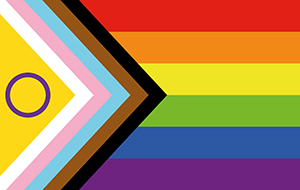What is a touring business?
Understanding what is a considered a touring business will help you decide the actions you'll need to take to get started.
A touring business provides transport along with scheduled guided itineraries, which can include meals and accommodation. Touring businesses generally own or lease vehicles and provide guides/drivers.
Types of tours can include:
- full and half day tours
- extended tours
- group package tours
- four-wheel-drive (4WD) adventure tours
- tag-along tours
- walking tours
- cycling tours
- horse riding tours
- winery tours.
Early stage
Before establishing a touring business, consider the following questions regarding the type of touring you intend to establish.
- Which area of the touring industry do you want to become involved in, such as full day, half day?
- Who are your competitors?
- How will your business be significantly different to other touring companies in your region?
- How much will the operation realistically cost to set up and how much money do you have available to invest in the business?
- Can you obtain affordable insurance cover to operate the business?
- Could you cover operating costs from other income sources or savings until the business breaks-even (typically two to three years)?
- What types of customers will be attracted to your business?
- Are customers readily accessible?
- Are there enough customers to sustain your business?
- Where and how will you find your customers?
- What knowledge and budget do you have at your disposal to market your business?
- Will your touring business represent quality and value for money?
Next stage
Once you have developed a business plan, you'll need to obtain registrations and licences for certain activities and apply for permits.
To find out which registrations, licences and permits you need for your tourist attraction, use the Australian Business Licence Information Service (ABLIS).
Common types of registrations, permits and licences required for touring businesses
Driver Accreditation (Commercial Passenger)
To drive a bus or special purpose vehicle in Victoria, you must hold a Driver Accreditation in addition to a Victorian driver's licence. This accreditation is required if your business is providing a service that carries customers by bus or in a vehicle that has more than 13 seats.
Obtaining a Driver Accreditation will ensure you have met the prescribed standards relating to the provision of road transport passenger services, passenger and public safety, service to passengers and vehicle and equipment safety.
A commercial passenger vehicle is any motor vehicle that is used or intended to be used for carrying passengers for hire or reward. In addition to taxis and hire cars, commercial passenger vehicles include:
- special purpose vehicles (e.g. vehicles used for weddings or tours)
- restricted hire car vehicles including pre-1943 vehicles, 4WD tour vehicles, motorcycles and non-emergency ambulances
- route, tour and charter buses.
Accreditation can be arranged through Transport Safety Victoria.
Tour operator licence
All operators offering outdoor travel, adventure, or educational tours on public land areas in Victoria on a commercial basis must hold a current tour operator permit.
Non-profit organisations and schools are also required to obtain permits for their activities at specific public land sites. Commercial activities on public land which require a permit include, but are not limited to the following:
- bushwalking
- bicycle riding
- horse riding
- canoeing
- rock climbing and abseiling tours
- tours visiting the 12 Apostles, The Grampians and other National Parks.


